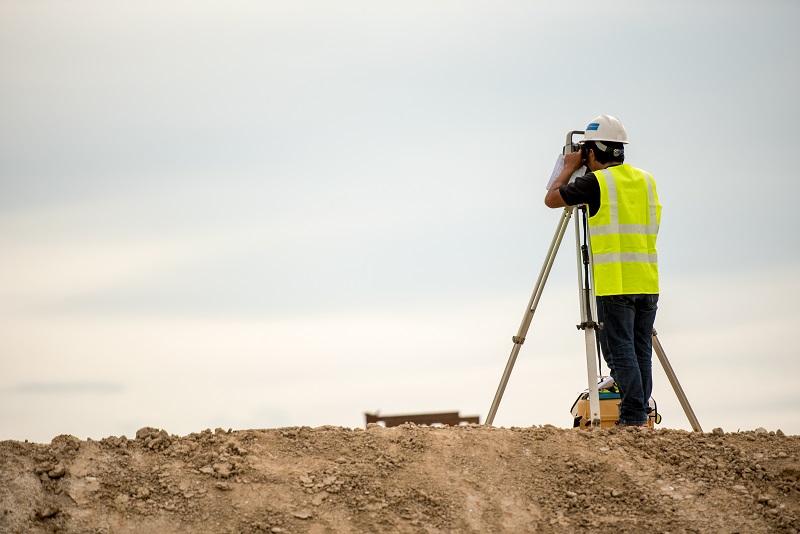We often marvel at the architectural complexity of skyscrapers, the elegance of designed spaces, and the vision behind engineering marvels. However, the seldom acknowledged heroes working behind the scenes—Licensed Surveyors—are a critical link in the chain that brings design to life. But, who are these surveyors? And, what do they do?
Without their measurements, charts, and studies, no structure can gain a foundation; no road can pave its way; and no urban or rural planning can be executed. From a tiny plot of residential land to massive industrial construction zones, surveyors lay the foundation upon which seems everyday yet remarkable. In this blog post, we delve into the vital services provided by Licensed Surveyors.
Whether you are a homeowner looking to make improvements, a property investor uncertain about the specifications of a plot, or simply interested in understanding the science and essence of measuring land, this comprehensive guide would map out your curiosities, stepping through the intricacies of land surveying.
Why Is Land Surveying Important?

Land surveying represents a cornerstone in the world of construction, architecture, and design. It takes the mystery out of land, revealing information that guides architects, builders, and landowners. Without proper land surveying, any structural project may face legal disputes, construction errors, wastages, and even safety hazards.
A certified Land Surveyor’s responsibility extends beyond mere measurements. It involves comprehensive site analysis, understanding the land’s history, assessing environmental impact, and providing guidance on feasible construction plans. Thus, surveying lies at the intersection of law, architecture, design, history, environment, and project management.
So, when embarking on a construction project, investing in land, or planning property improvements, it’s essential to consider professional land surveying. It not only saves heavy potential losses in the future but also ensures a smoother construction process and a stable, secure, and legal final structure.
What Do Licensed Surveyors Offer?
Licensed Surveyors are certified professional’s adept in various land assessment techniques. Their offerings extend from basic boundary measurement to complex topographic analysis.
Land or Boundary Surveys helps determine the exact boundaries of a property. Topographic Surveys map the land’s contours, elevations and features, forming a three-dimensional representation of the property. Subdivision Surveys aid in subdividing a larger land piece into smaller plots, while Construction Surveys provide a roadmap for builders.
On the more specialized end, Hydrographic Surveys help assess body of waters, and Geodetic Surveys deal with large-scale land measurements considering the earth’s curvature. Further, Land Surveyors also provide services like Route Surveys for roads or pipelines, Legal Descriptions for property documentation, and even Consulting on construction projects.
Unmasking The Process – How Do Land Surveyors Operate?
A land survey starts with a review of existing records about the property, including title, deeds, and maps. After initial discussions with the landowner regarding specific requirements, surveyors visit the site for on-ground measurements using specialized tools.
Using advanced techniques like GPS, electronic distance measurement (EDM), and computer-aided design (CAD), detailed reports are prepared. These reports provide invaluable input for architects, engineers, designers, and owners – forming the bedrock of the planned construction.
Understanding The Pros and Cons of Land Surveying
Like every process, land surveying has its pros and cons. The immediate benefits include avoiding legal disputes, accurate zoning, efficient planning & design, quick problem identification, informed decision-making, and saving on construction costs.
However, the process can be time-consuming, especially for larger properties. Costs may seem high for a small-size residential project. Moreover, finding skilled and experienced surveyors may be challenging in some regions.
The Roles and Responsibilities of Licensed Surveyors
Licensed Surveyors play pivotal roles in property development. From reviewing land history, identifying boundaries, creating detailed site descriptions, advising on project feasibility, collaborating with architects or engineers, to providing vital documents— the responsibilities are vast and wide.
With a strong focus on detail, precision, and knowledge across multiple domains, a Licensed Surveyor is indeed a lynchpin in property planning and construction.
Conclusion
Licensed Surveyors are unsung heroes in land planning and development, bringing together their unique skills, depth of knowledge, and understated artistry across a plethora of services. Understanding their importance and knowing when to engage their services is paramount for anyone – be it a homeowner, a construction professional, a property investor, or simply a land enthusiast. Bear in mind our adage – “Land development is a symphony, and Licensed Surveyors conduct the orchestra.” Explore the power and versatility of their services, and ensure your projects – large or small – are built on solid ground.

